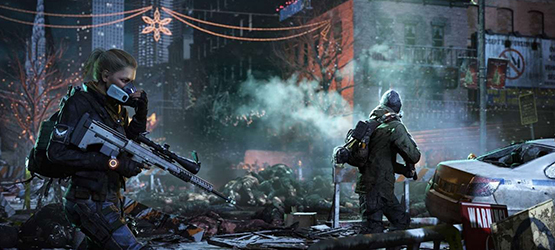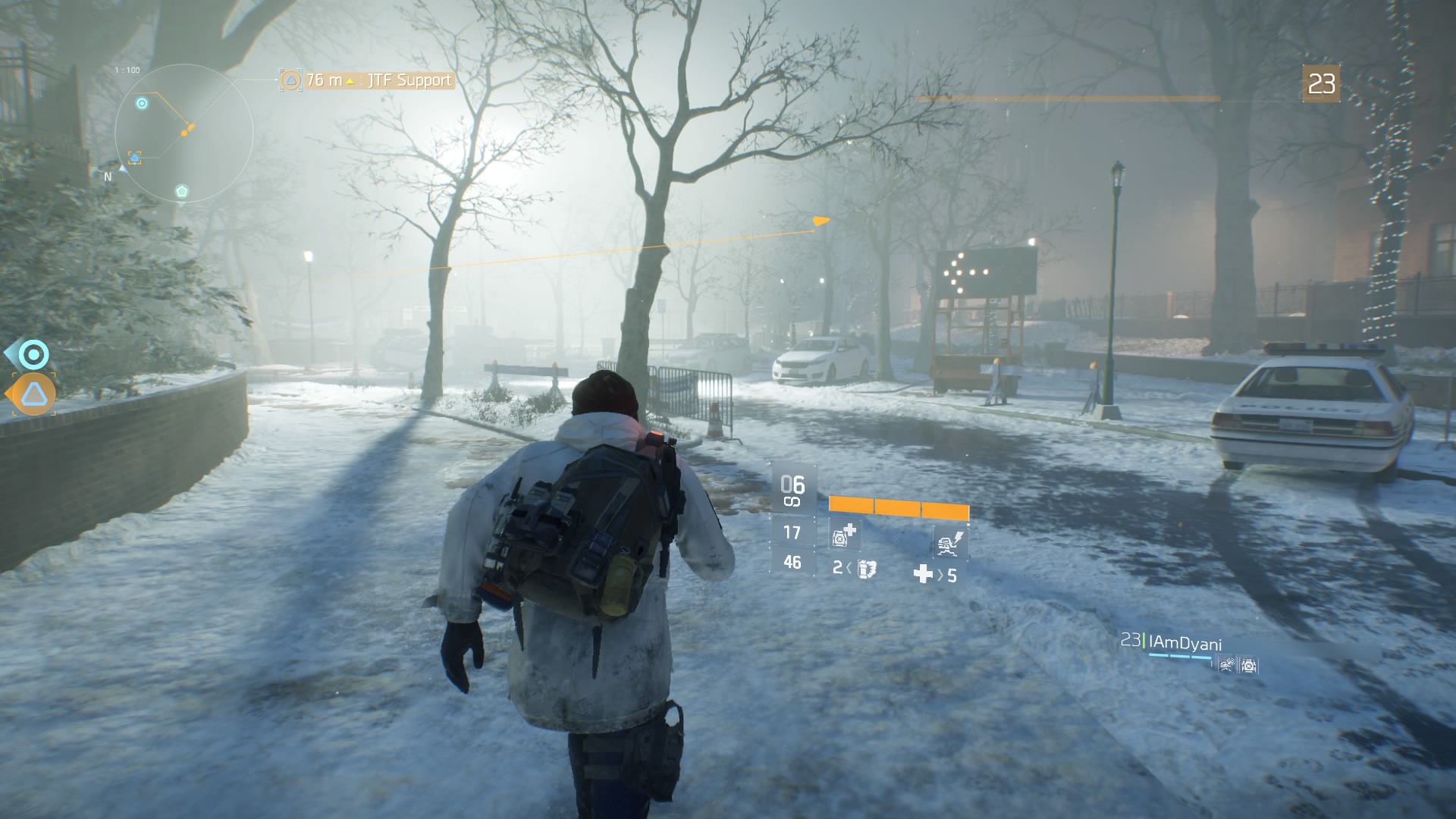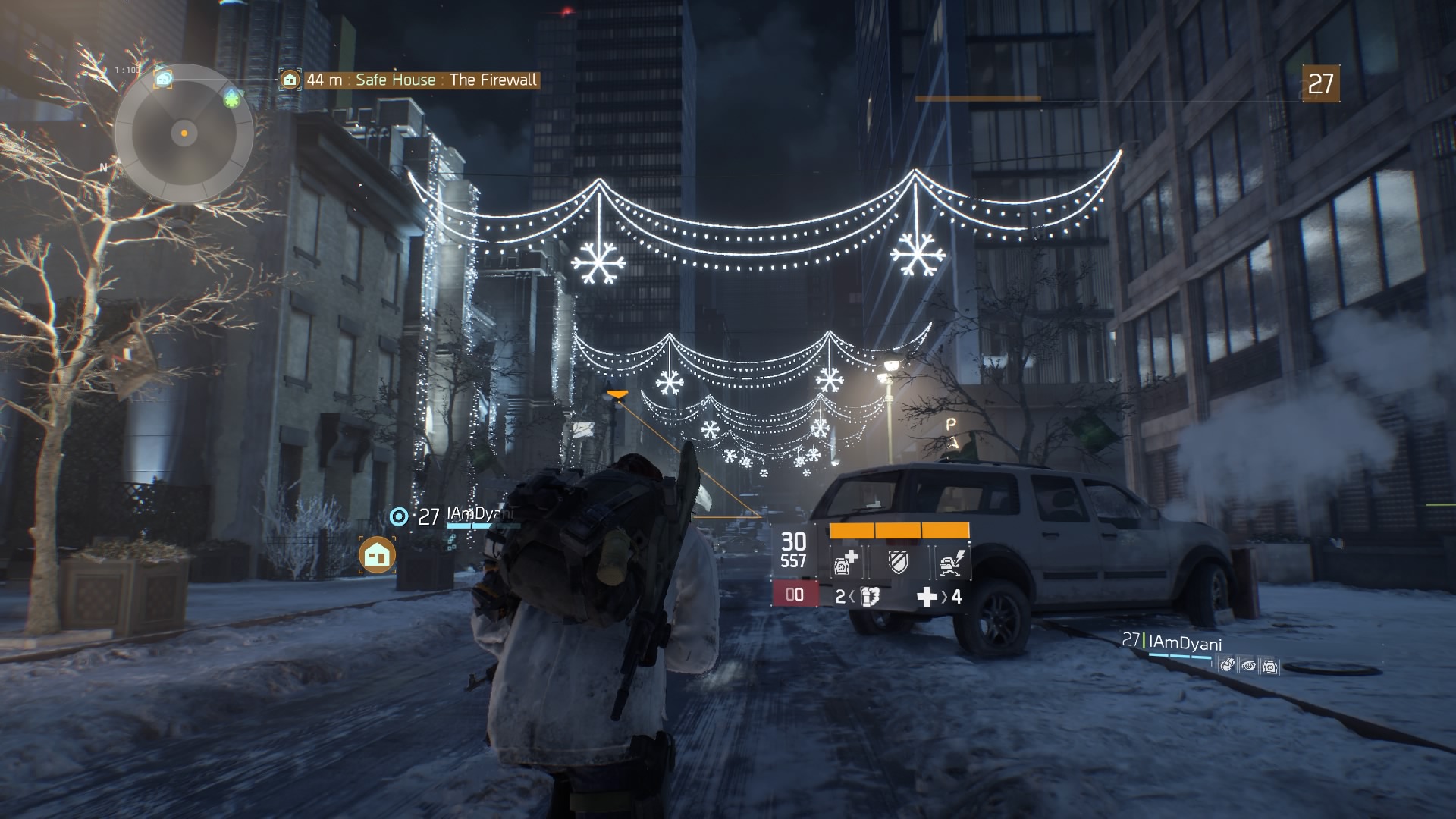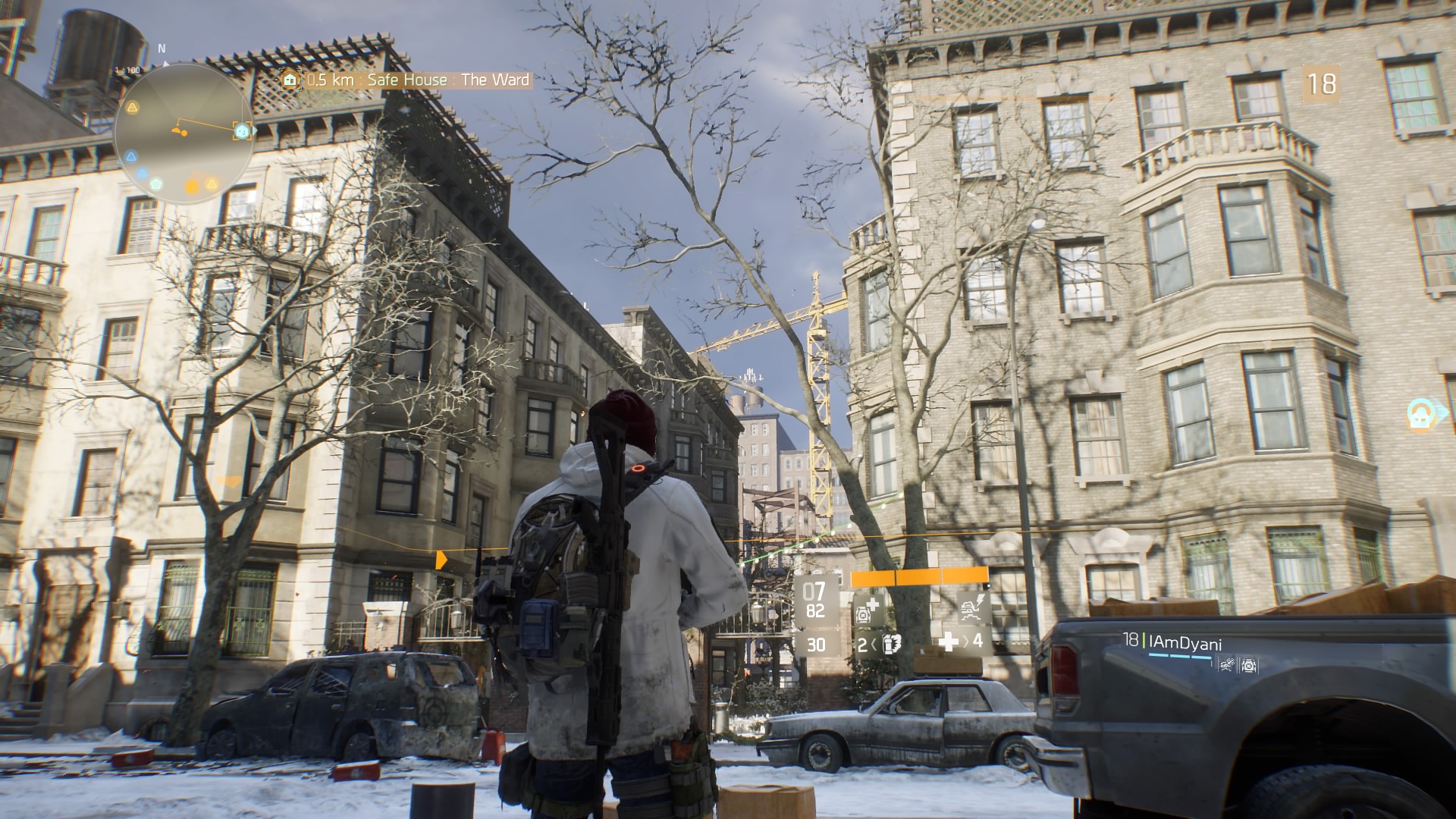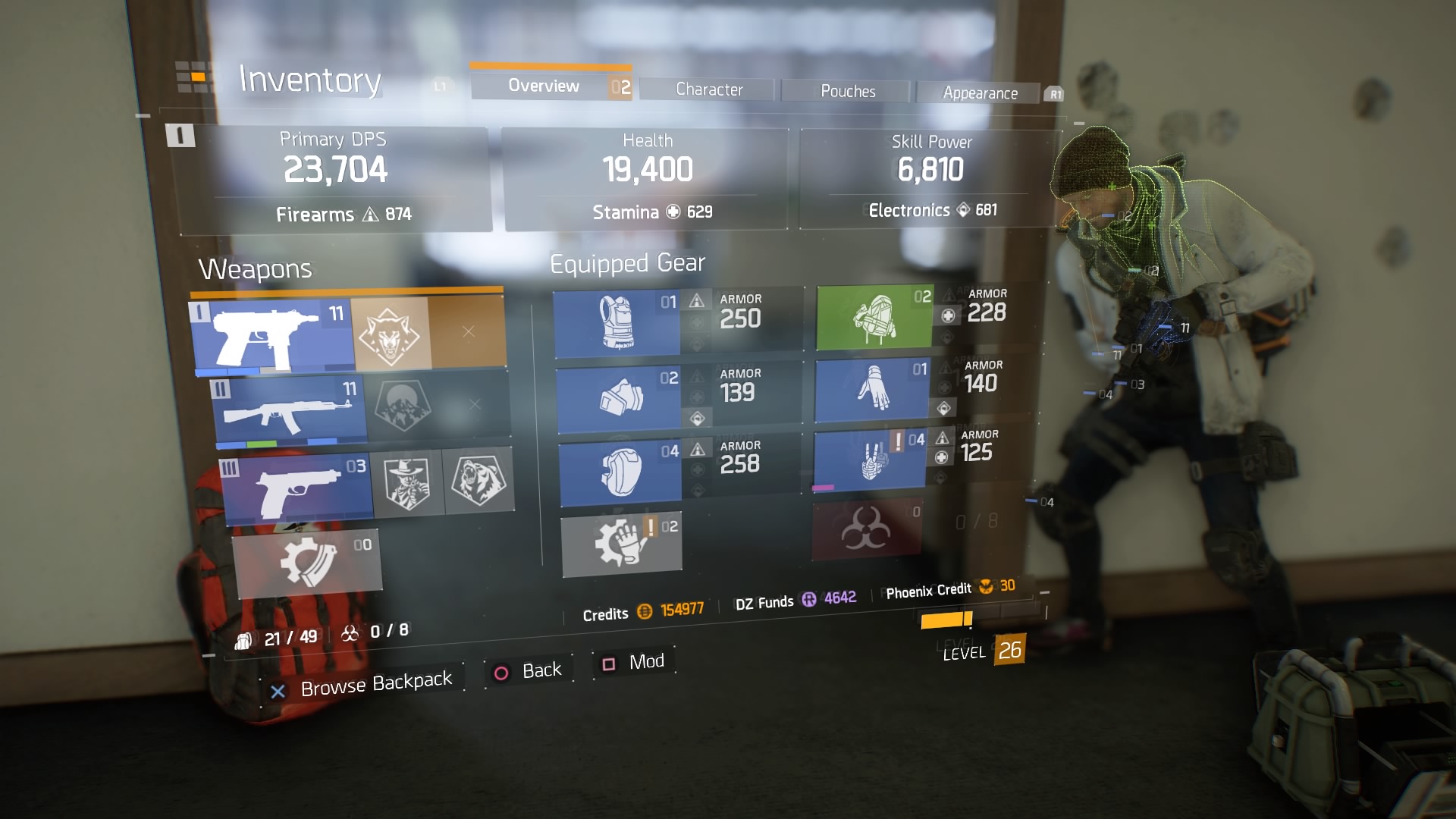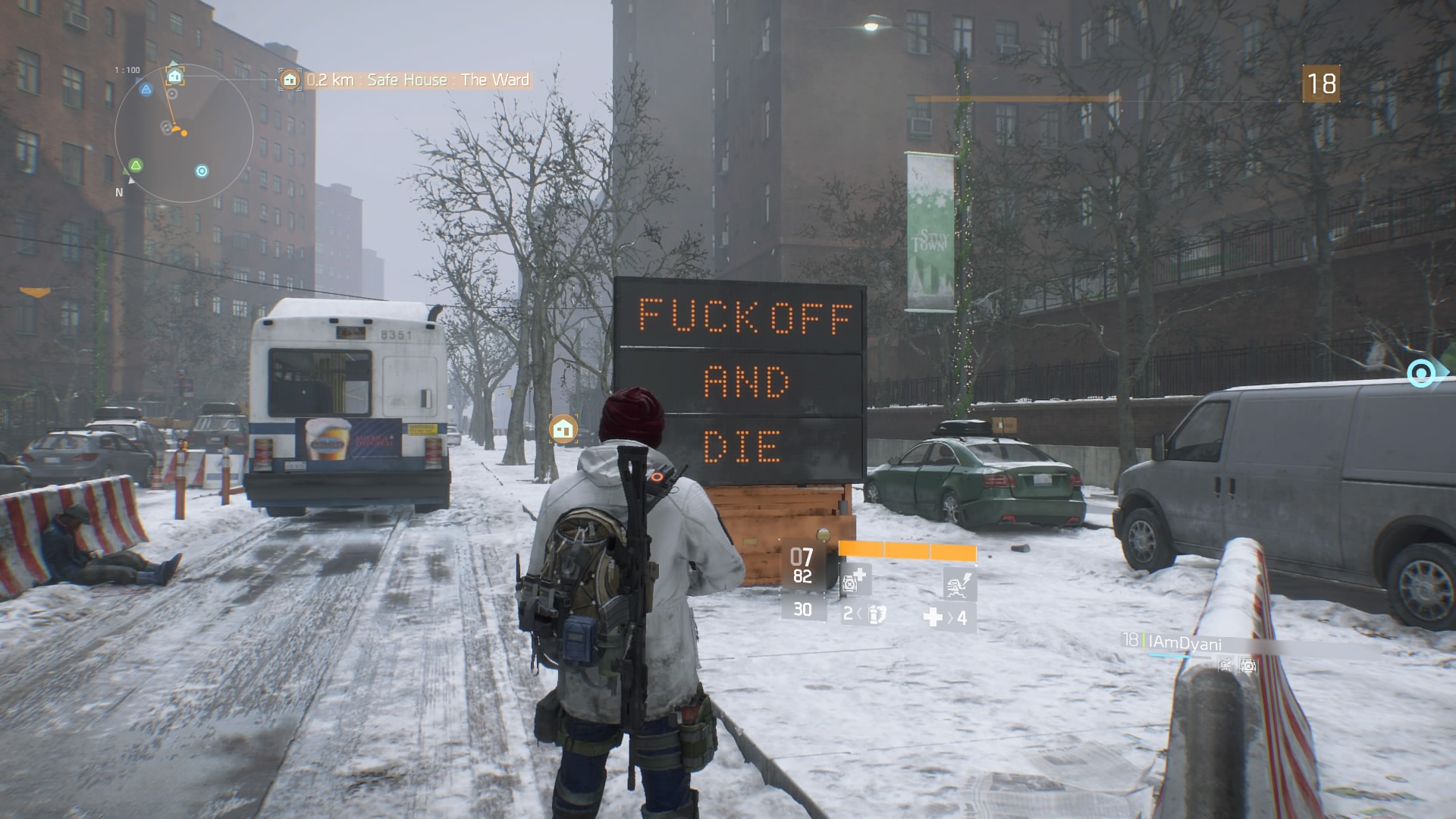Snow flutters gently to the ground through the still air. A distant speaker plays a soft and forgotten song through an empty plaza. A pile of bodies burns in a park across the street. My carefully placed bullet pierces the fuel tank on the back of a “Cleaner,” and his screams sound as an alarm that he knows he’s only got fleeting moments left for this world. The fiery explosion brings back the quiet peace of the increasing snowfall, but I know it won’t last long. There’s another threat waiting on every block of this lawless, virus infested world. This is New York City now, and this is my life as a Division agent.
I’ve had my boots — or suede shoes, rather — on the ground for 45 hours, which means I have played a lot of The Division in the five days since release. As a newly activated (and painfully silent and emotionless) second wave agent, my task is to help clean up and bring order to the quarantined streets of New York City. A virus with an exceptionally high mortality rate known only as the Green Poison has been spreading faster than officials know how to handle it. Add to that the rampant lawlessness of certain factions of civilians, and you’ve got a boiling pot of disaster located within just a handful of square miles that threatens the future of the entire human race.
The Melting Pot
A boiling pot of its own, The Division aptly combines elements of many other games while managing to retain an identity for itself. I’ve seen the Destiny comparison come up a lot, and I’ve even made it myself in regards to the beta, but the more I play, the more I distance it from that correlation. I find more similarities with games like Diablo III, XCOM: Enemy Unknown, The Elder Scrolls Online, or even Borderlands than I do with Bungie’s shooter.
The Division blends the familiarity of cover based third-person shooters with a deep and intricate MMO styling, complete with class customization, loot drops, and level ups. Better yet, it does so in such a way that alienates neither group, but makes the game accessible to play no matter which side you’re coming in from. If it leans more towards one side than the other, I would say that there are certain MMO elements about it that I took for granted which more casual players may never pick up on. The solid cover shooter base helps make this a non-issue though.
Don’t expect to make headshots and get one-hit kills. Sure, it will be doing critical damage, and aiming means far more in this than in something without traditional aiming mechanics like Diablo or XCOM, but there is a certain tactical level that each player must approach The Division with. Enemy health will drop similar to Borderlands, with numbers indicating precise damage being done to the health bar. It takes some getting used to, but ultimately makes the game really focus on communication and group combat, which comfortably scales to manageable but difficult levels as you add more people. Some of the best moments I had in The Division were times when I was in a group taking on missions that were far too hard for us, and yet we deftly overcame the challenge.
Unfortunately for those who want things on the simpler side, the weapon menu is a mess to navigate. Trying to determine which weapons to keep, mod, or discard is nightmare inducing as there is no way to separate or organize them by type, so you have to figure out if that shotgun with less DPS than your SMG is worth keeping or modding based on tricky information. Haven’t managed your inventory in a while? Good luck. You’ll probably throw something out you meant to keep. And yet, there’s an entirely separate section for weapon mods which I can’t actually equip from that menu. It could do with some serious tweaking.
Cover based shooter fans, those first 45 hours of the game are for you. In the grind to level 30, The Division is an open world third-person shooter that you can play with friends (or strangers, or that guy doing jumping jacks in the corner of the safe house). Loot will be consistently outclassed by future drops. The map is going to drive an ADD person mad with nearly 300 collectibles, and tons of side missions and encounters to find. You will still be unlocking and discovering skills and talents. The Division as an open world cover based third-person shooter is already a full game by itself that will take in excess of 50 hours to complete if you are going for 100% completion.
Then they added the end game.
In the End, It Doesn’t Even Matter
It’s this point that will wildly separate players. You know those people that finished the story in Diablo III then put it down? This part is not for them. The Division end game is for those people that have sunk thousands of hours into Diablo III or the Borderlands games in search of the absolute perfect loot rolls for every single one of their characters. Some people will play The Division like any other open world game, completing everything they can. These players can even achieve the platinum trophy. But beyond that, there are people who will play The Division in perpetuity of something they may never actually fully achieve.
When you finish the main missions and reach level 30, you can continue to play story missions on hard difficulty for more challenges and better rewards. There are also daily missions, and challenge modes to take on. And of course that giant red area in the middle of the map known as the “Dark Zone.” Though you can technically take on the Dark Zone beginning at level 10, most players probably won’t jump into it until the end game, seeing as any loot they obtain would be quickly outclassed as they leveled up.
Left in the Dark
The Dark Zone is supposed to be The Division’s PvP area, where players compete against one another for above average loot. Agents who attack other players can steal their loot and extract it for themselves, but are considered rogue, and when dying in this state, the penalties are severe. It’s this reason, combined with the relatively unimpressive loot drops, that you will hardly see any players actually fighting each other in the Dark Zone. Its not worth it to go rogue for high risk and mediocre rewards, so the Dark Zone becomes little more than a place where players team up with random other groups to take on hoards of slightly more difficult enemies for some okay loot that probably won’t outclass the things that you can craft yourself at the base.
While the initial offering of The Division is impressively full featured for an MMO, the end game feels incomplete. I know that DLC and updates will be expanding this aspect in the coming months, but I can’t help but feel that there’s really not much to strive for once the final mission has been played.
It does feel a little unfair though, to critique something only after I’ve spent almost 50 hours thoroughly enjoying it. While the end game may be lacking, nearly everything leading up to that moment is done incredibly well. It’s graphically stunning and detailed (the Snowdrop engine is awesome). The missions are lengthy, fun, and change dynamically based on your group numbers and the skill builds of each player. It’s simple to respec your class if you want to change how you play. It’s also got a bleak world fleshed out through recordings and logs around the city. How great the initial game is perhaps makes it all the more disappointing there’s not a bigger challenge and reward in the end.
Let’s Debrief
At the end of the day, when The Division starts showing flaws, aside from minor design issues that I can grouse and grumble about, I have already played it five times longer than the entire length of other games. I don’t want to make excuses for the developers and say that it’s okay to add in content later to make it feel complete, but as full featured and fairly polished as the base experience is, it’s an issue of me wanting more, rather than an issue of the developers leaving much out.
The Division is something special that’s never really been done before in games, and while I don’t expect perfection from such a bold experiment, I’m impressed with what they have been able to pull off so far. We’re just one week post-pandemic. Imagine what’s in store for us going forward.
Tom Clancy’s The Division review copy provided by publisher. For more information on scoring, please read our Review Policy here.
-
Graphically impressive
-
Immense sense of scale to the world
-
Fun and challenging gameplay that scales depending on group numbers and skill loadouts
-
Expertly combines elements of many games and genres to be an entity all its own
-
End game unbalanced
-
The Dark Zone has no real incentive to go rogue, meaning no actual PvP takes place
The Division Everything You Need to Know
-
The Division - Everything You Need to Know
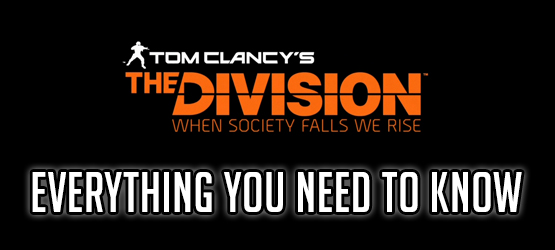
-
Year One DLC Plans and Loot Trading
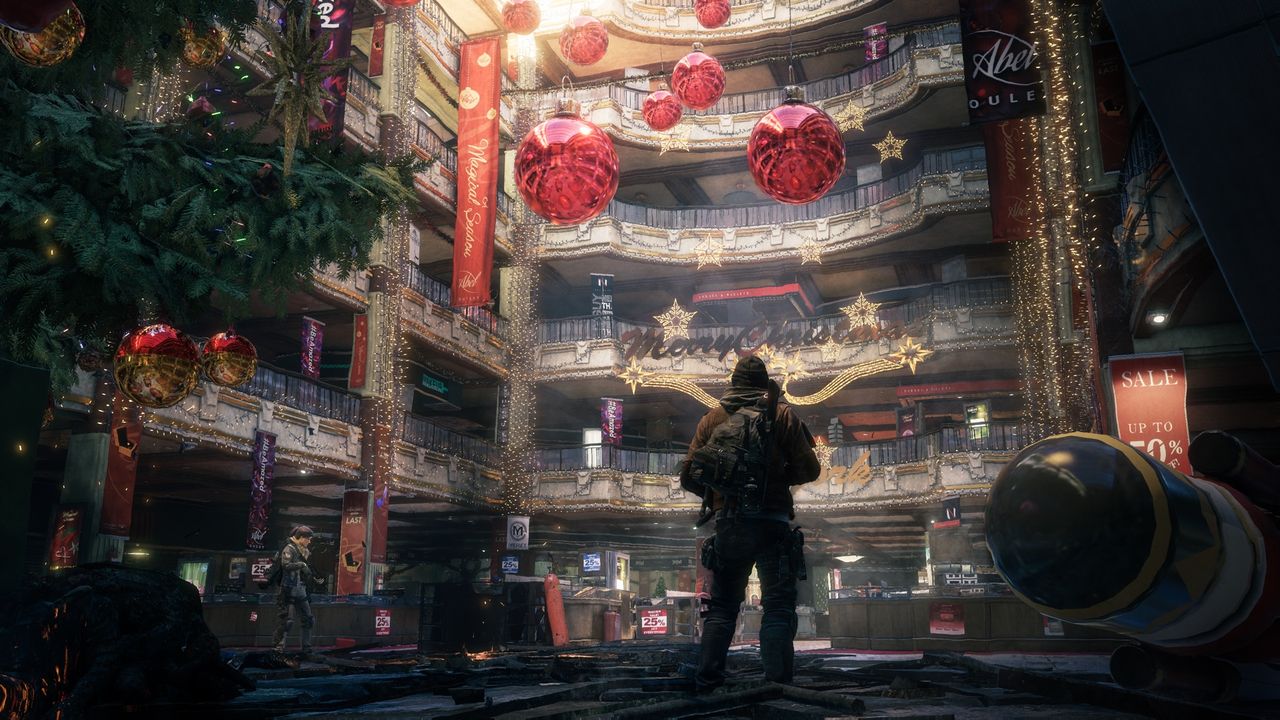
Offering further details on their post-launch plans for The Division, Ubisoft announced that free updates in April and May will add new incursions, new features to the Dark Zone, loot trading, and more:
Incursions (April 2016)
- The first free update will introduce the first incursion, a new challenging end-game activity developed specifically for squad play. Teams will be able to test their skills as they face seemingly unstoppable enemies to gain high-level weapons and equipment. This update will also add one of the community’s most-wanted feature, loot trading; allowing players in the same group to trade loot collected during a co-op game session.
Conflict (May 2016)
- The second free update will add new features to the Dark Zone and add a new incursion in the iconic Columbus Circle.
More details about the expansion pack can be seen here.
-
We Played It at E3 and Here's What We Thought Then
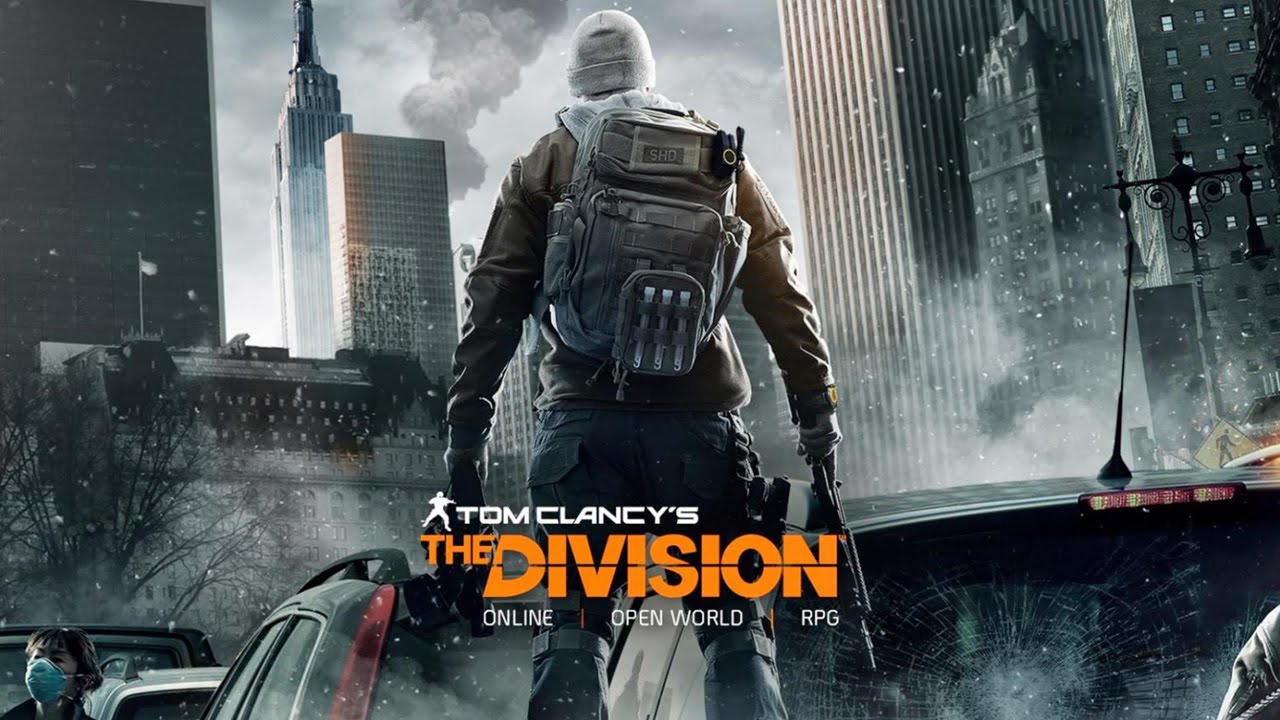
Did the game improve compared to last year's E3 build? Check out our hands-on preview to find out.
-
Here's What to Expect in the Dark Zone and Going
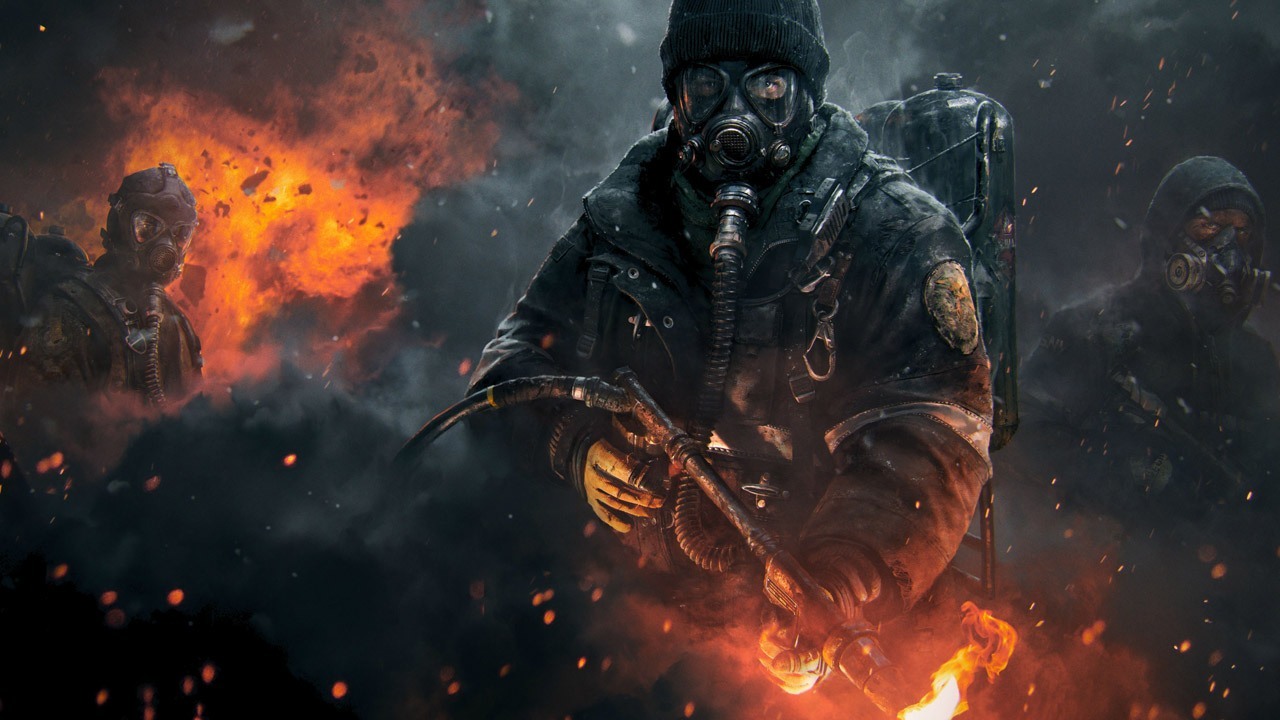
If you weren't able to partake in the beta, The Division will have a "Dark Zone" in the game where players can be bullies or help out others. Exec Producer Fred Rundqvist explains it as:
You can play on your own, absolutely, or as part of a team. If you want to play alongside others, you can hook up with people inside the game world and form a group, or go through matchmaking and start as part of a team. If you’re playing solo you won’t get totally overwhelmed — enemies scale to give a challenge to just one person or to a larger team.
Check out his full explanation of the Dark Zone here.
In related news, Senior Game Designer Matthieu Delisle explains going "rogue" status in the Dark Zone and PvP:
When you turn Rogue, you get a bounty on your head and all the players can see it. The more you kill, the bigger the bounty. You climb the levels of Rogue by killing other players. If you are a level one Rogue, you’re Rogue for two minutes. But if you kill more players, you’re Rogue for a longer period of time. Every time you kill a player you refresh that counter and it increases up to five minutes. If you manage to survive your Rogue status – which is pretty difficult because all the players want to kill you and can see you on the map – then you receive your own bounty. So you can progress in the Dark Zone by being a Rogue, but it’s pretty risky and difficult.
-
You'll Be Able to Create Four Characters
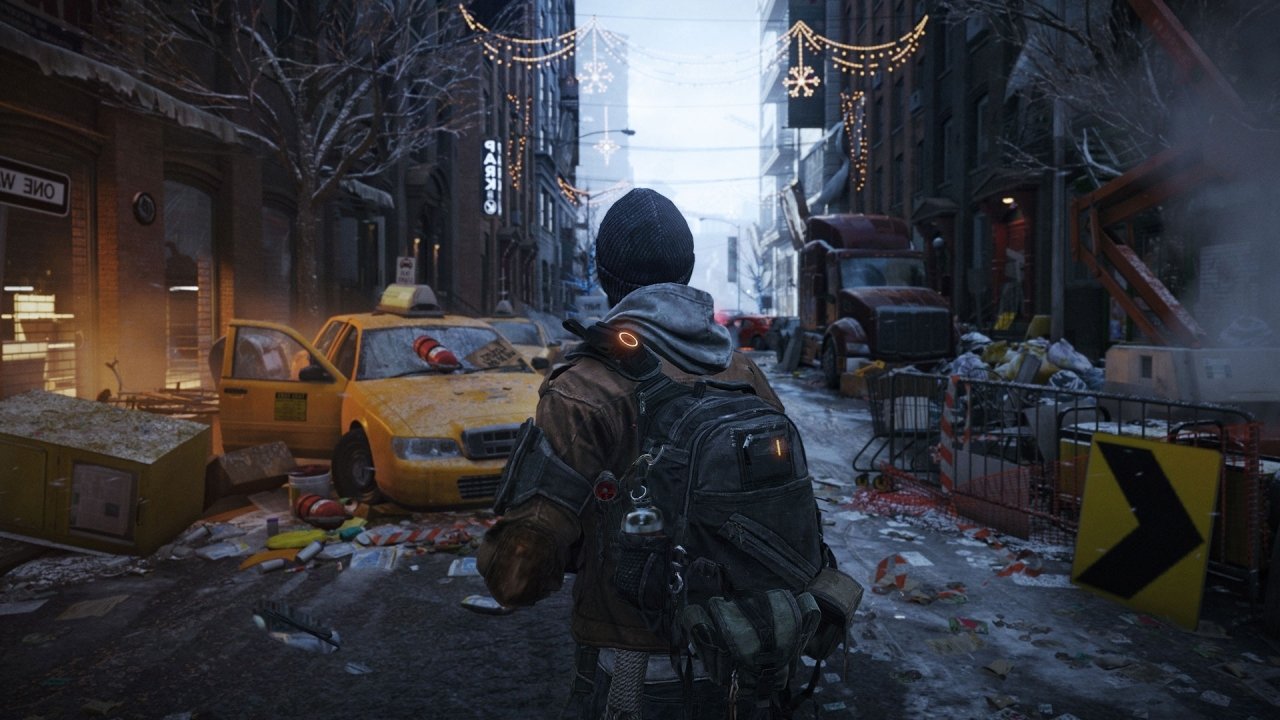
Ubisoft has revealed that players will be able to have up to four characters on a single account in Tom Clancy’s The Division. All we have to do is pick who we want from the Start menu. As to why you should consider that and the other advantages to having multiplayer characters, Associate Lead UI Artist Lars Vincent explains it in this video.
-
Player to Player Trading Won't Be Available on Day One
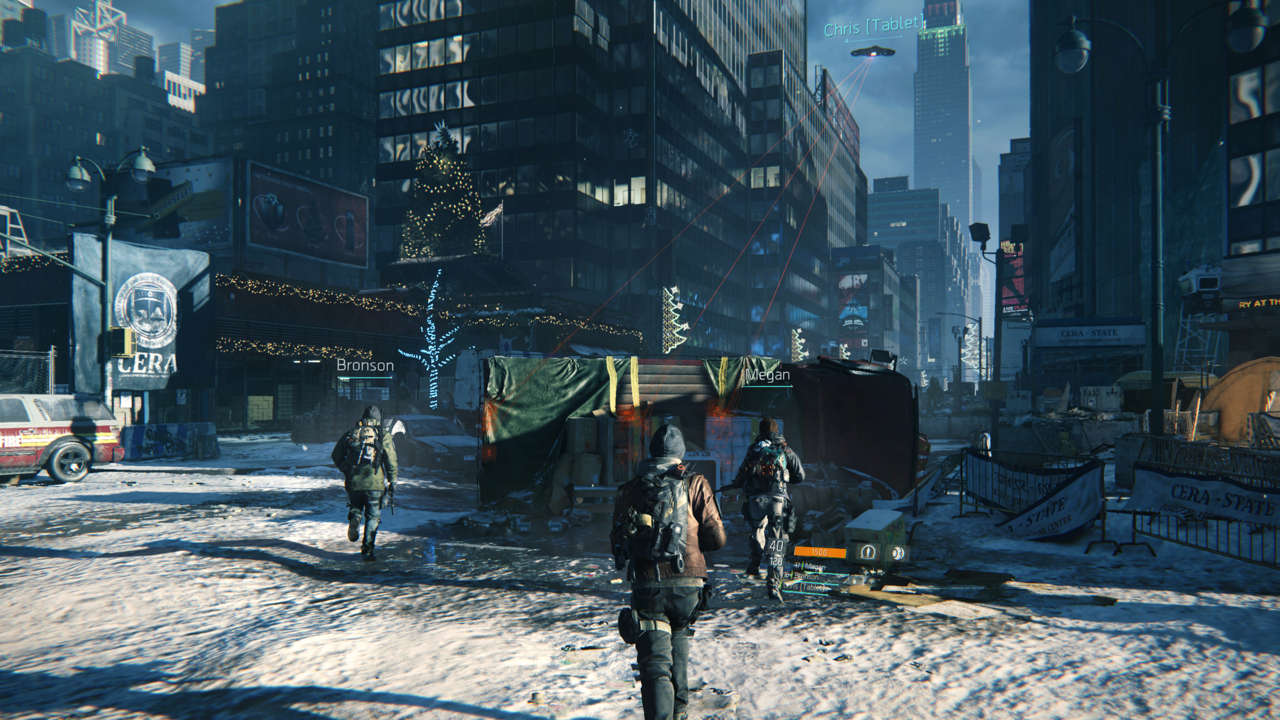
Player-to-player trading won't be possible once The Division launches, but it's been confirmed to be available very, very soon after launch.
-
Don't Expect Day One Reviews and Here's Why
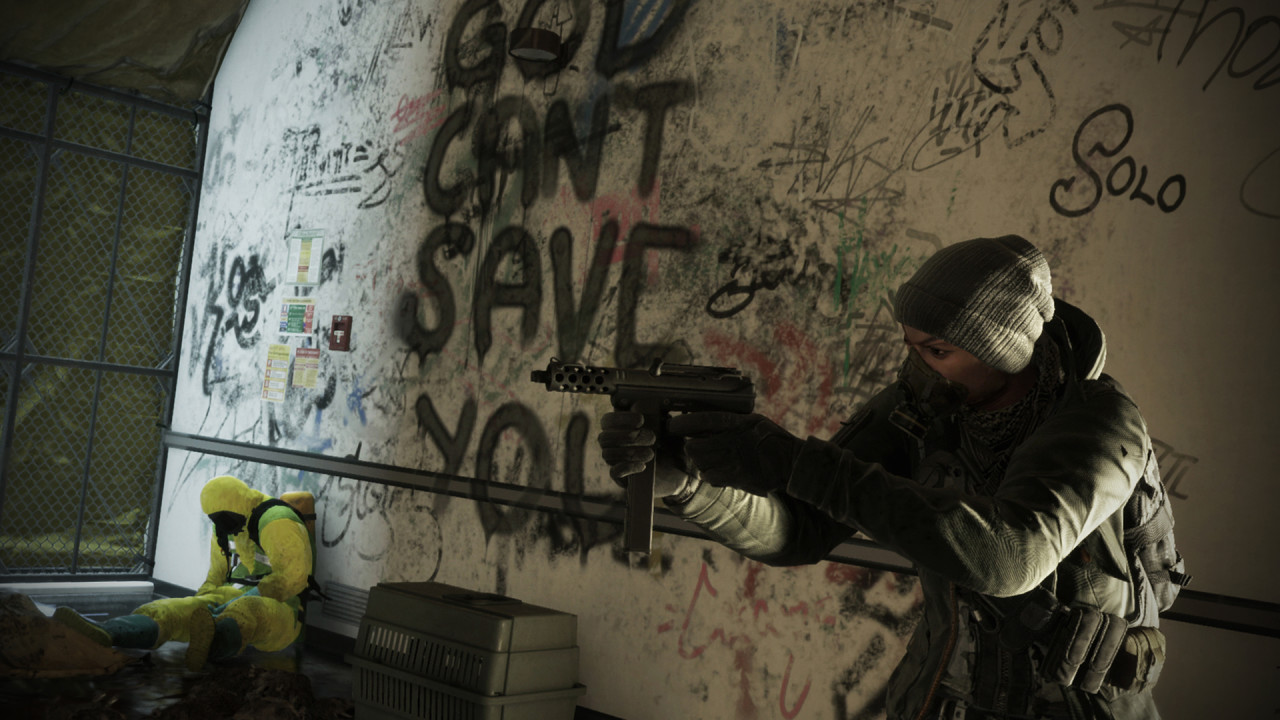
While PlayStation LifeStyle will do its best to have a review up of The Division on the site as soon as possible, don't expect it on day one. Reason being is that Ubisoft is giving out review code on the day the game is out, so reviewers will be able to play the same game the gaming public plays.
-
Check Out This
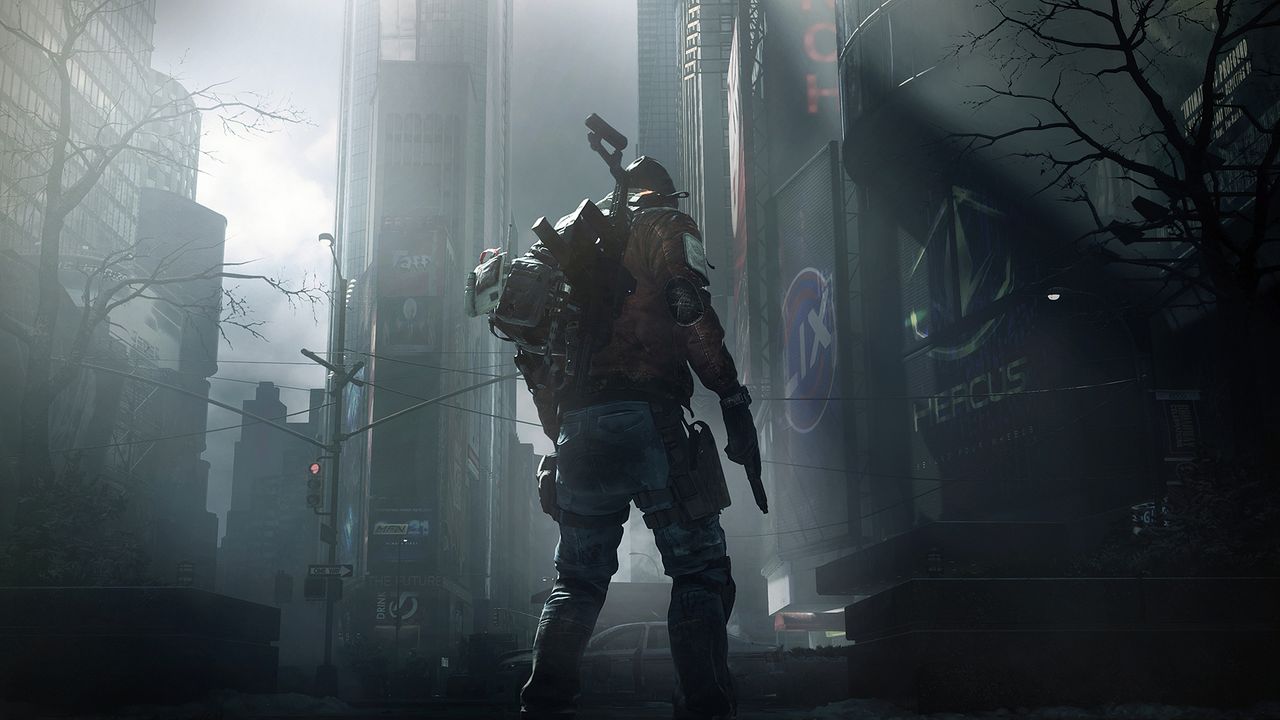
Want to know how fast civilization can crumble when faced with an apocalyptic epidemic? Check out how fast your city will deteriorate with Ubisoft's "Collapse" simulator.
-
Ubisoft Says the Game Won't Have Micro-Transactions
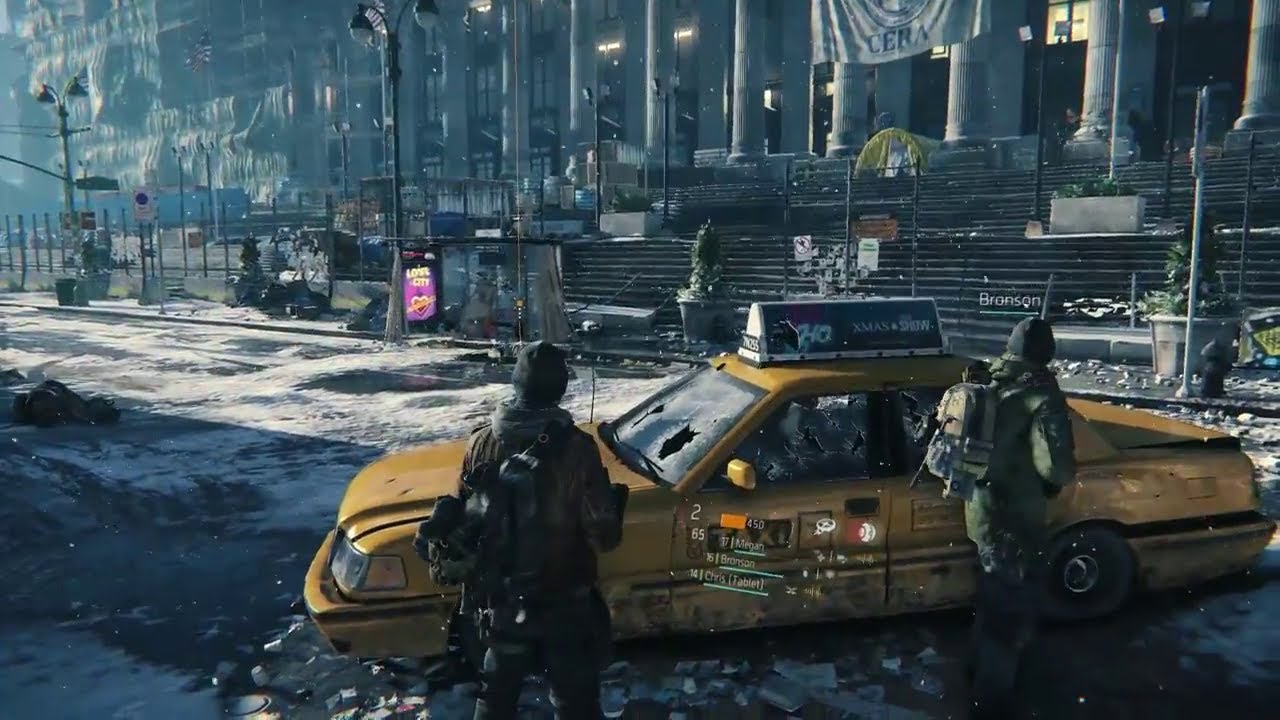
No micro-transactions and no to p2w. But why are players still nervous? Read on to find out.
-
Don't Expect Split-Screen Multiplayer
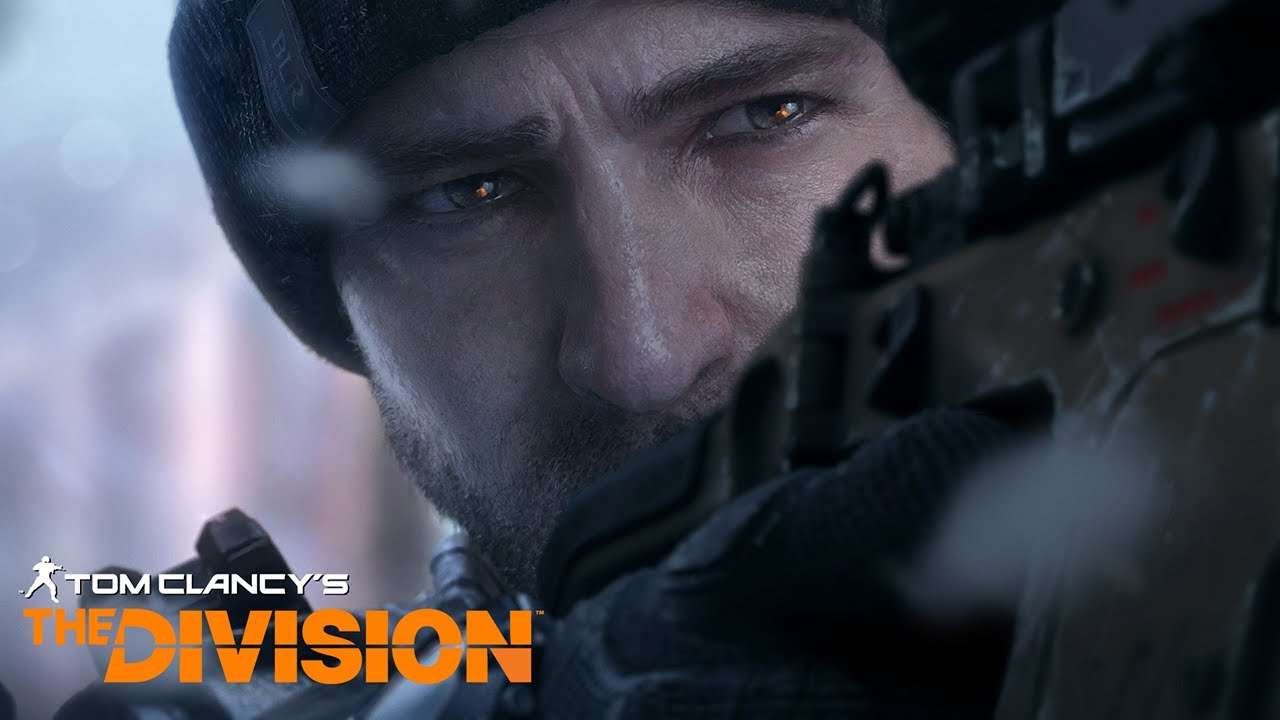
Nope. The Division won't be like yesteryear's games where you can co-op with buddy on the couch.
Check out what Creative Director Magnus Jansén had to say and why they omitted it.
-
Expect DLC to Be Exclusive to Xbox for a Month
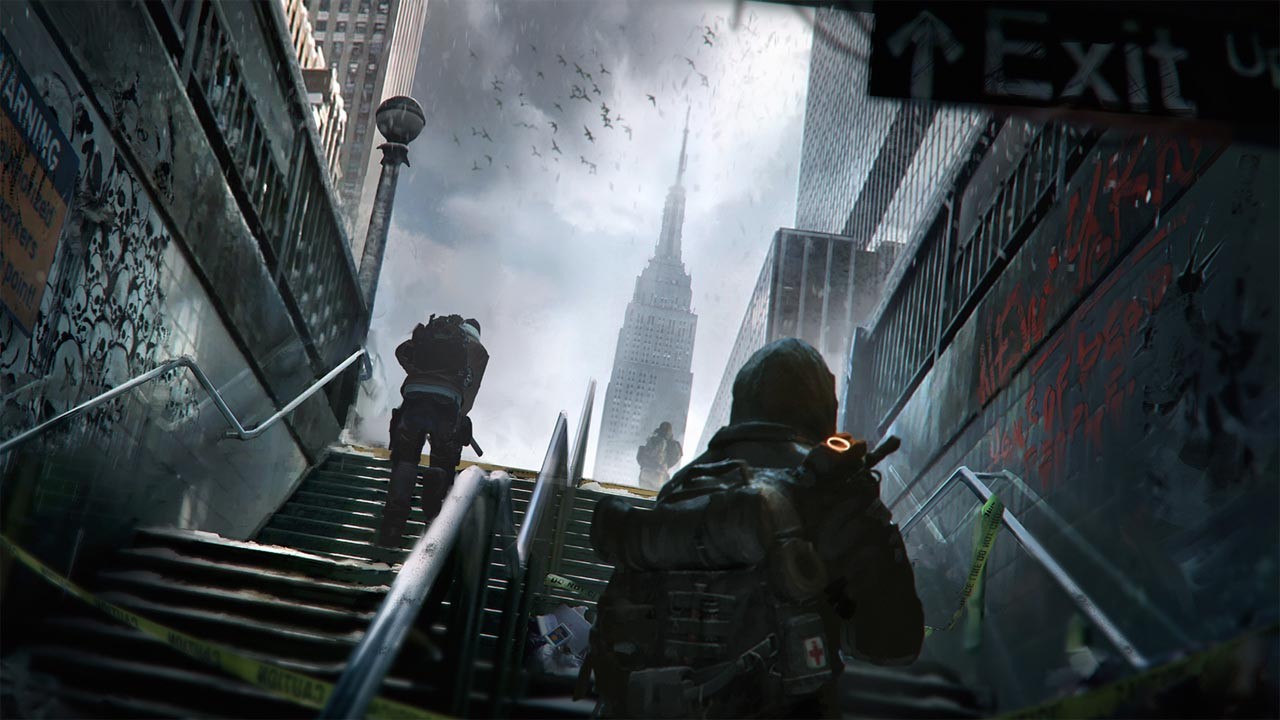
Unfortunately, The Division is one of those games with timed exclusivity agreements in place when it comes to post-release content. So expect DLC for The Division to appear on PS4 after 30 days from its Xbox One availability.
-
Ubisoft Released a Bunch of The Division
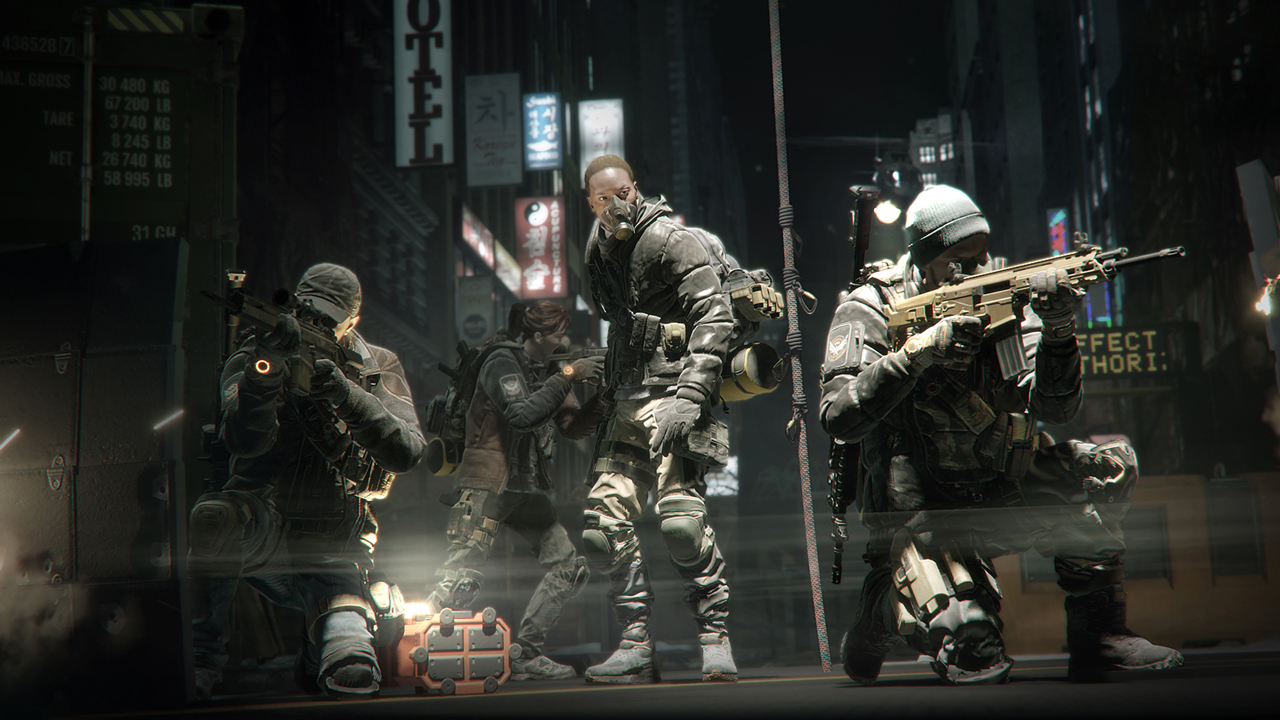
Learn the ropes by watching Ubisoft's video guides on UI customization, map matchmaking, the consumable wheel, and Dark Zone currency. 1
-
Season Pass Content Includes Three Major Expansions
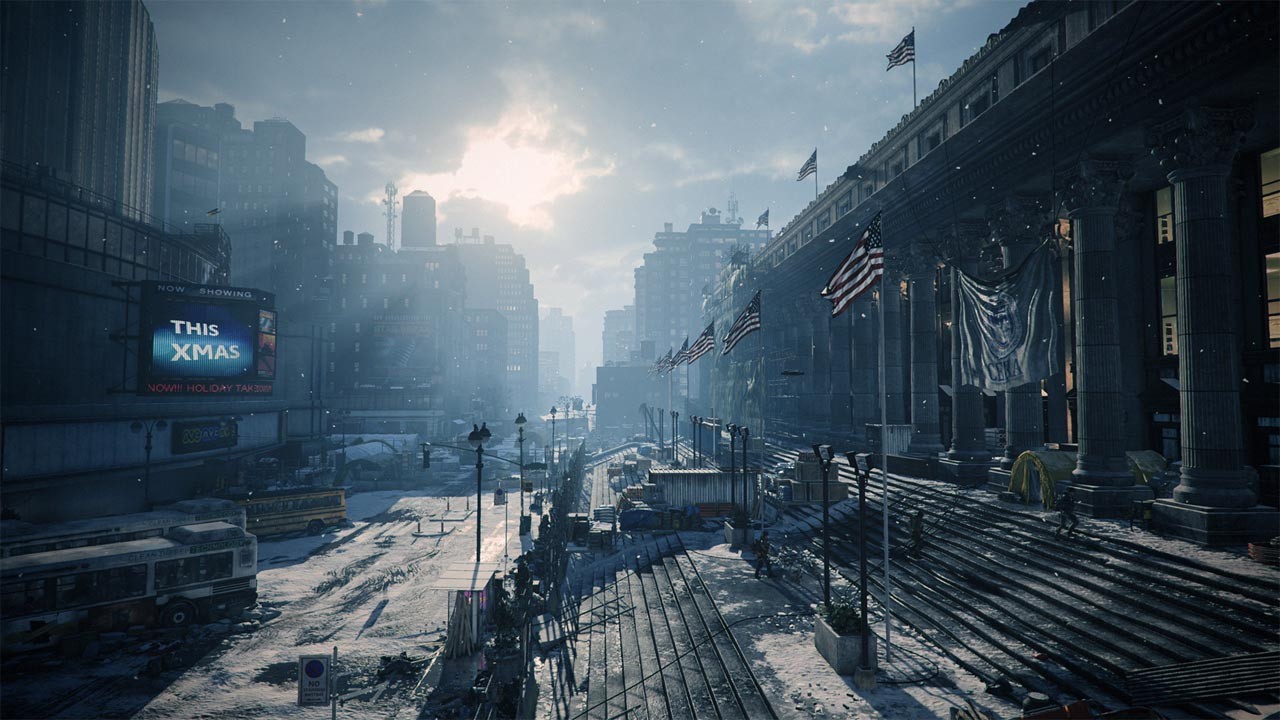
The three expansions will arrive over the course of the year and add new content, gear, and gameplay.
Expansion I will be called "Underground," expansion 2 named "Survival, and expansion 3 is to be titled "Last Stand." More details can be found here.
There's also free content launching in Year One, including the ability for players to trade loot with party members.
-
Details on Level Cap, Micro-Transactions, Skills, Customization and More
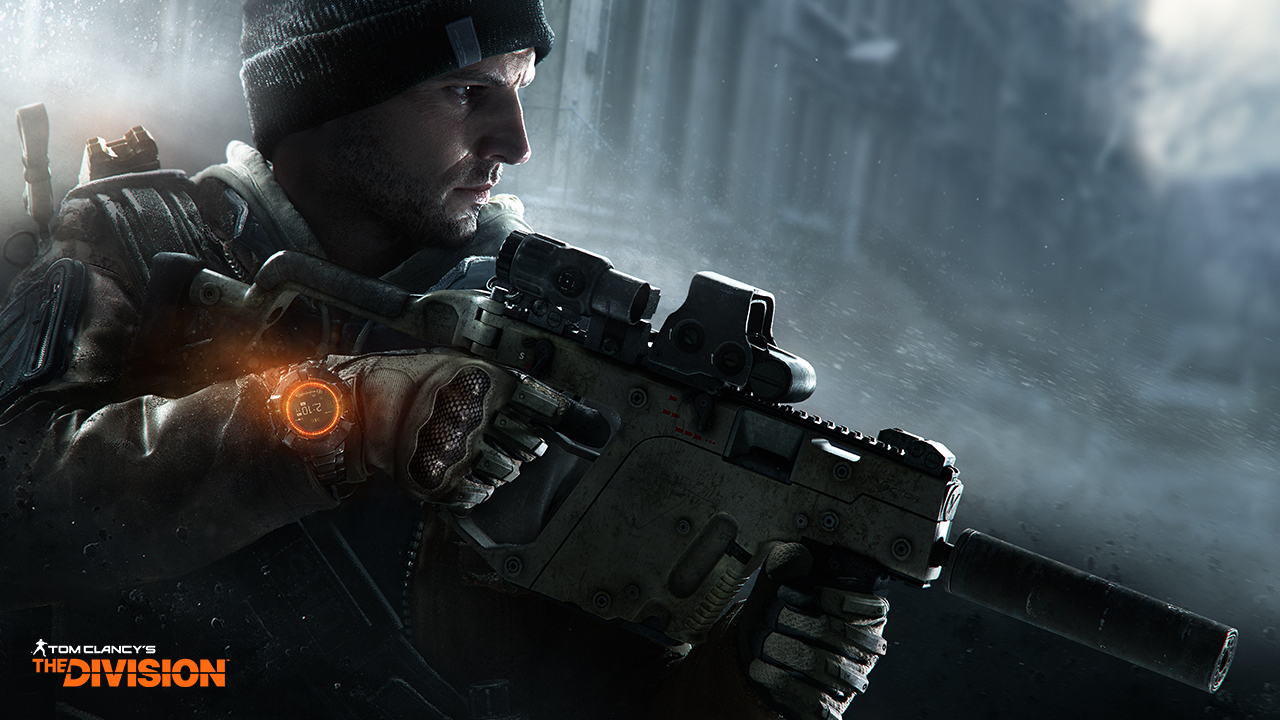
Answering the most popular questions on the official Ubisoft blog, new details on loot, experience, skills, talents, and customization were given.
The skill system is what defines an agent's role. Here's a load of info on character progression, the experience system, and skills.
-
Lag sucks, So The Division Will Prioritize Ping and Connection
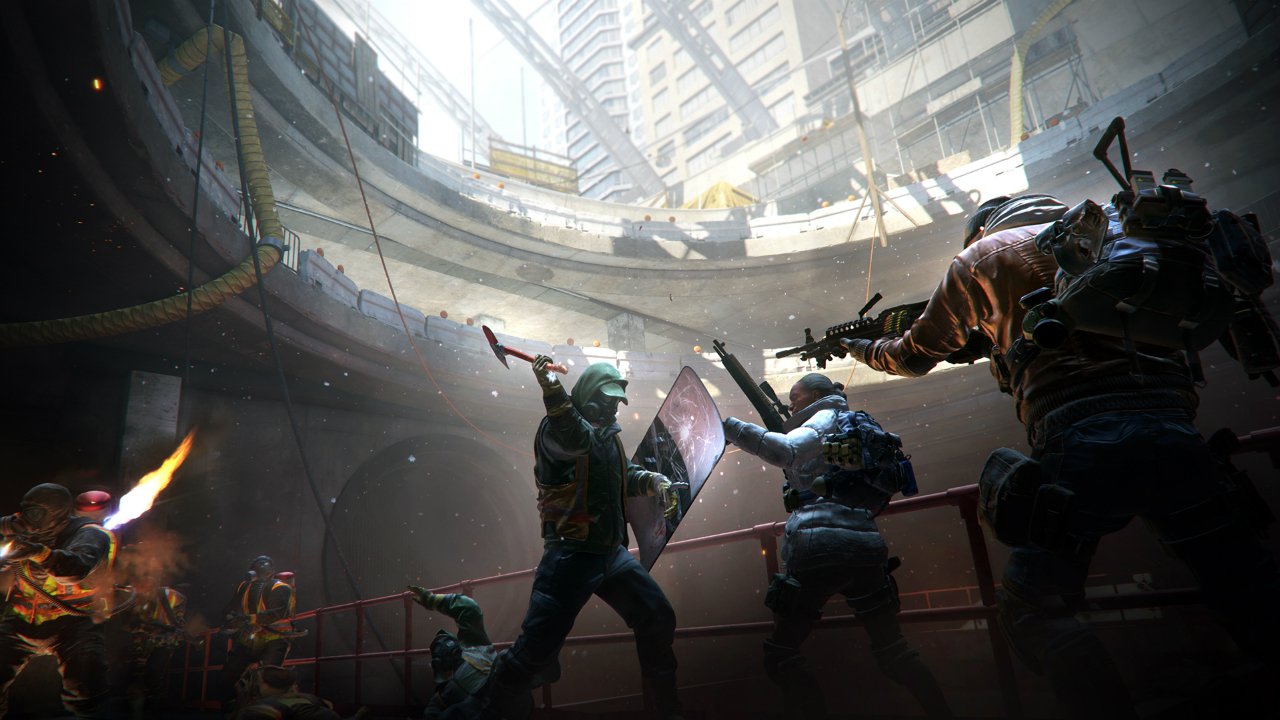
Creative Director Magnus Jansen wants players to "notice matchmaking as little as possible." Therefore, Ubisoft Massive has dropped demographic matchmaking for a smoother experience.
-
Customize, Upgrade, and Specialize Your Agent With the Skill Tree
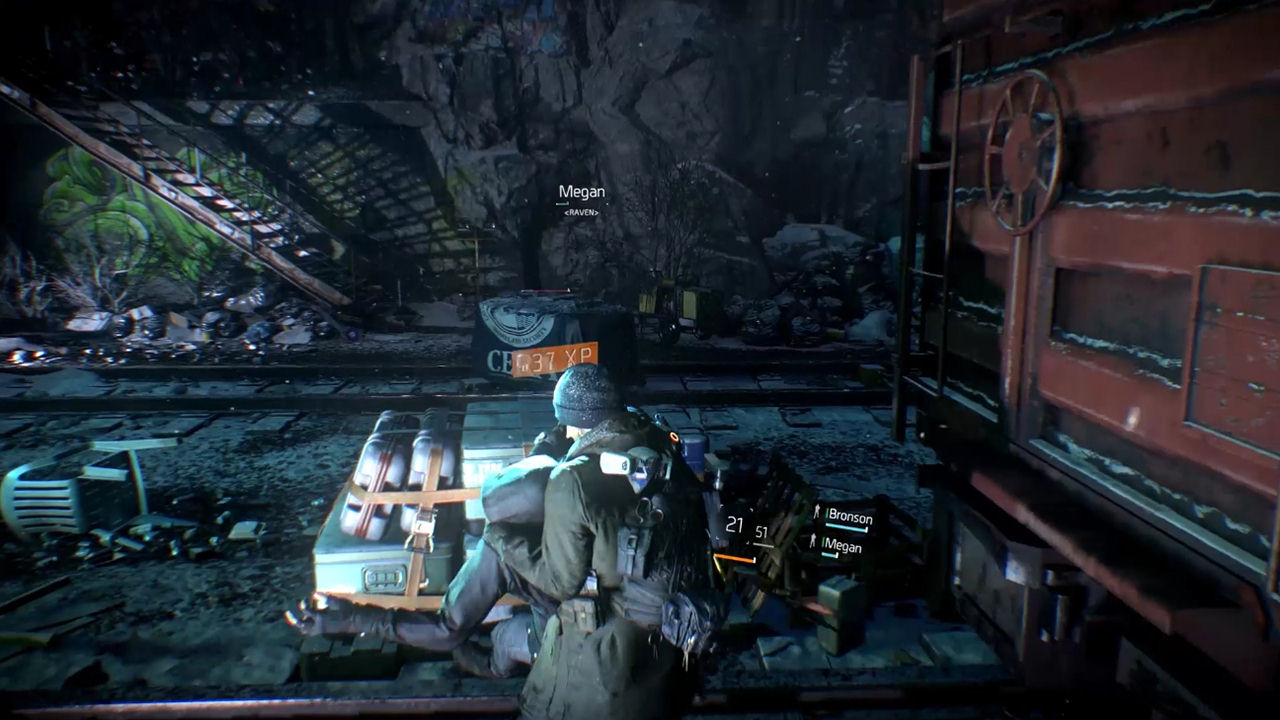
Ubisoft put together a thorough video walkthrough of the skill tree system implemented in The Division. Included is an example of how skills can be combined, so be sure to give it a watch.
-
Find Out Why the Game is Set in a Mid-Crisis Manhattan
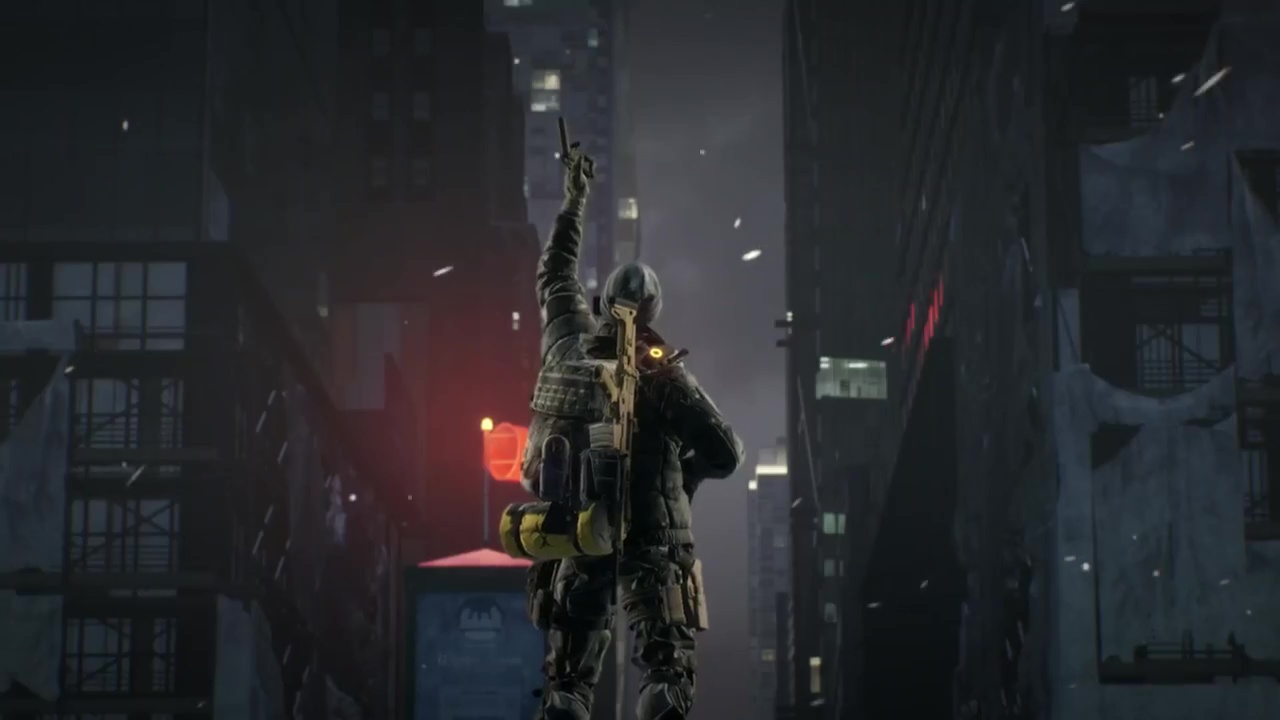
Ubisoft claims that in-game Manhattan will be "a 1 to 1 scale recreation," and "more than enough to sink your teeth into."
For those wanting to take a closer look at the The Division's render of Midtown Manhattan, check out this interactive map.
-
It's Making the Most Out of Each Gaming Platform
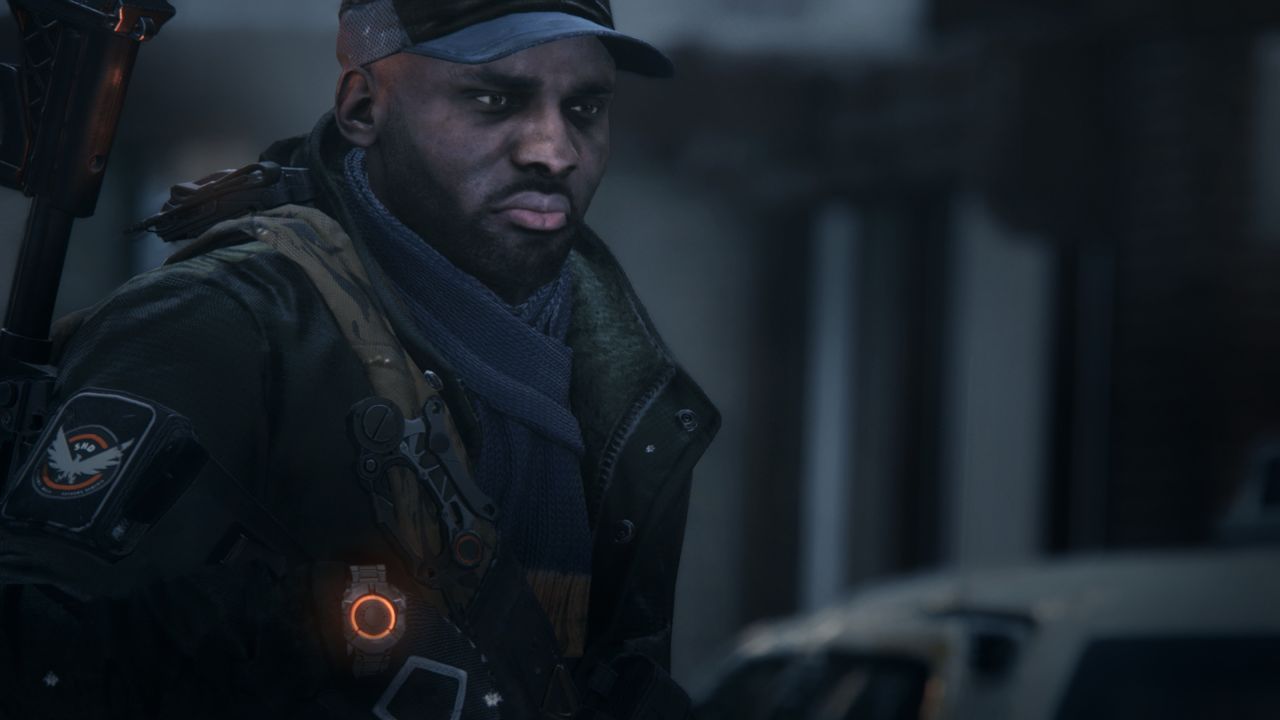
Rather than aiming for parity across all systems that The Division is releasing on, Ubisoft Massive is instead trying to get the most out of each platform, with some versions possessing features that the others do not.
-
The Beta Was a Massive Success
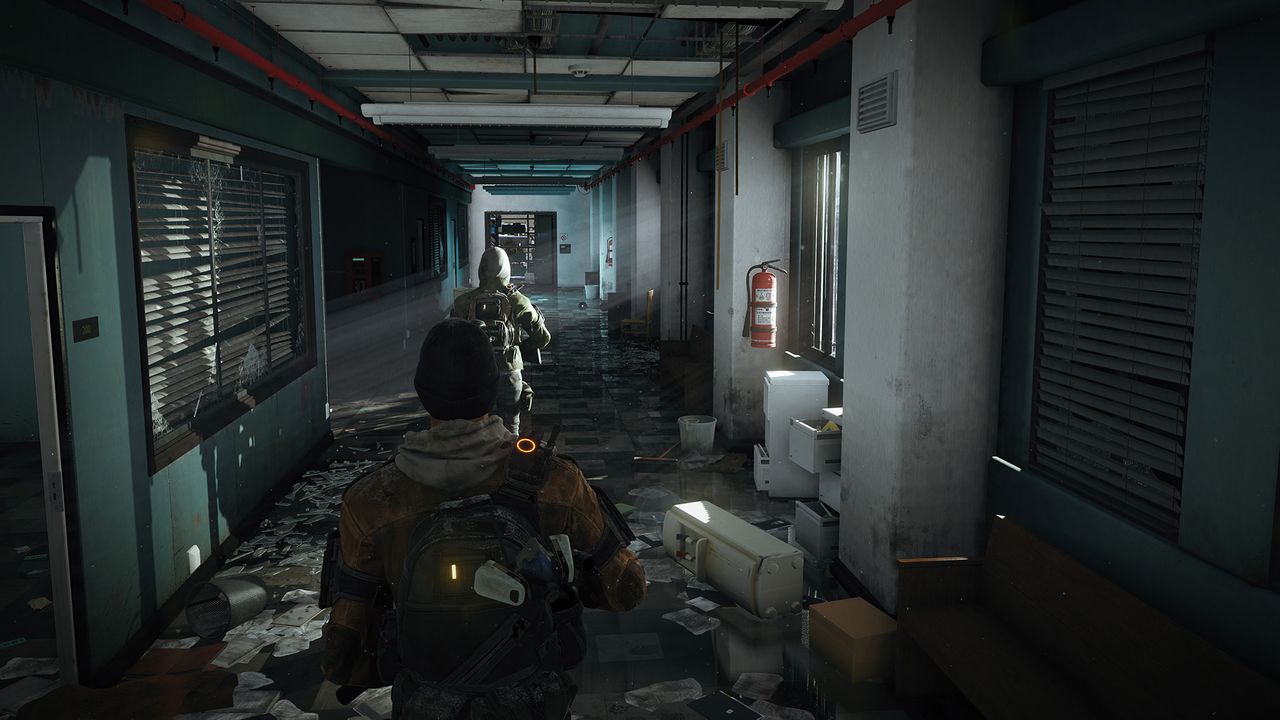
With 6.4 million people taking part in The Division open beta on PlayStation 4, Xbox One, and PC, a new record was set.
A list of other stats from the beta were also provided by (an ecstatic) Ubisoft Massive.
-
Read Our Impressions of the Beta
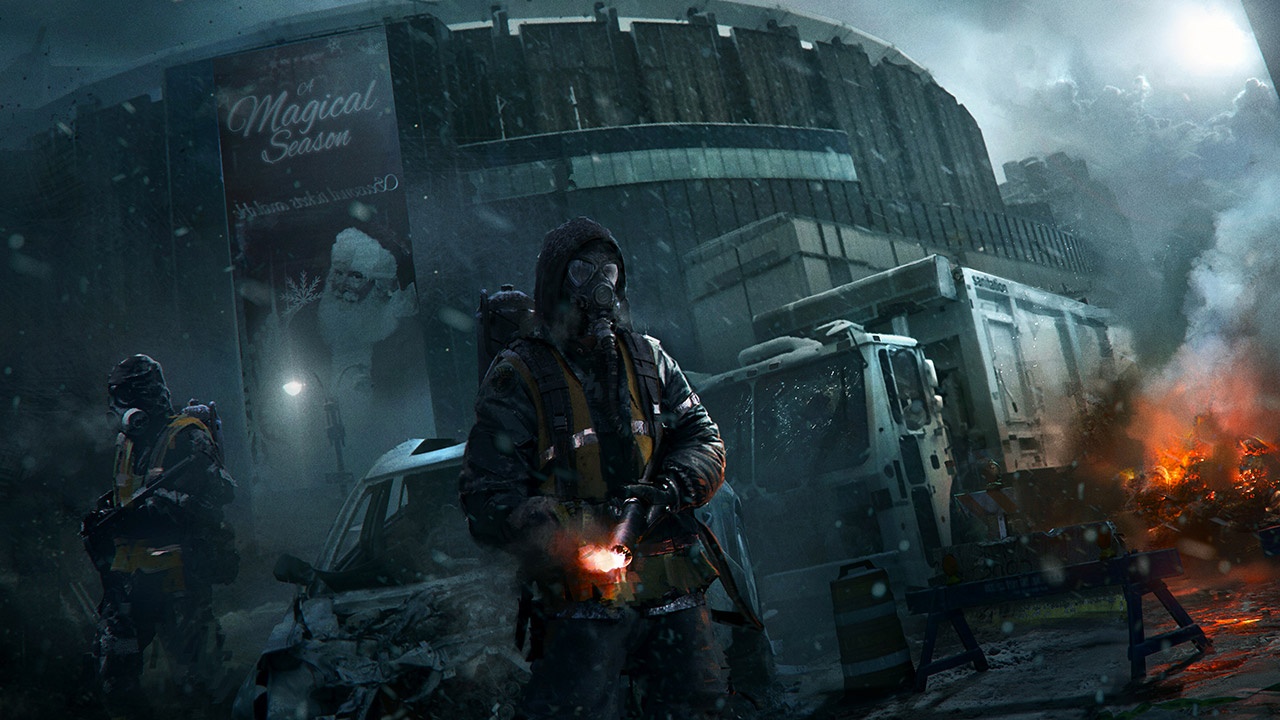
"The Division is coming along at a time when it feels like it will steal many of what used to be Destiny’s audience. It has the same kind of appeal, taking a typical console game genre and building it into an MMORPG..."
Read our full preview here.
-
Top 5 Tweaks We Want to See Based on the Beta
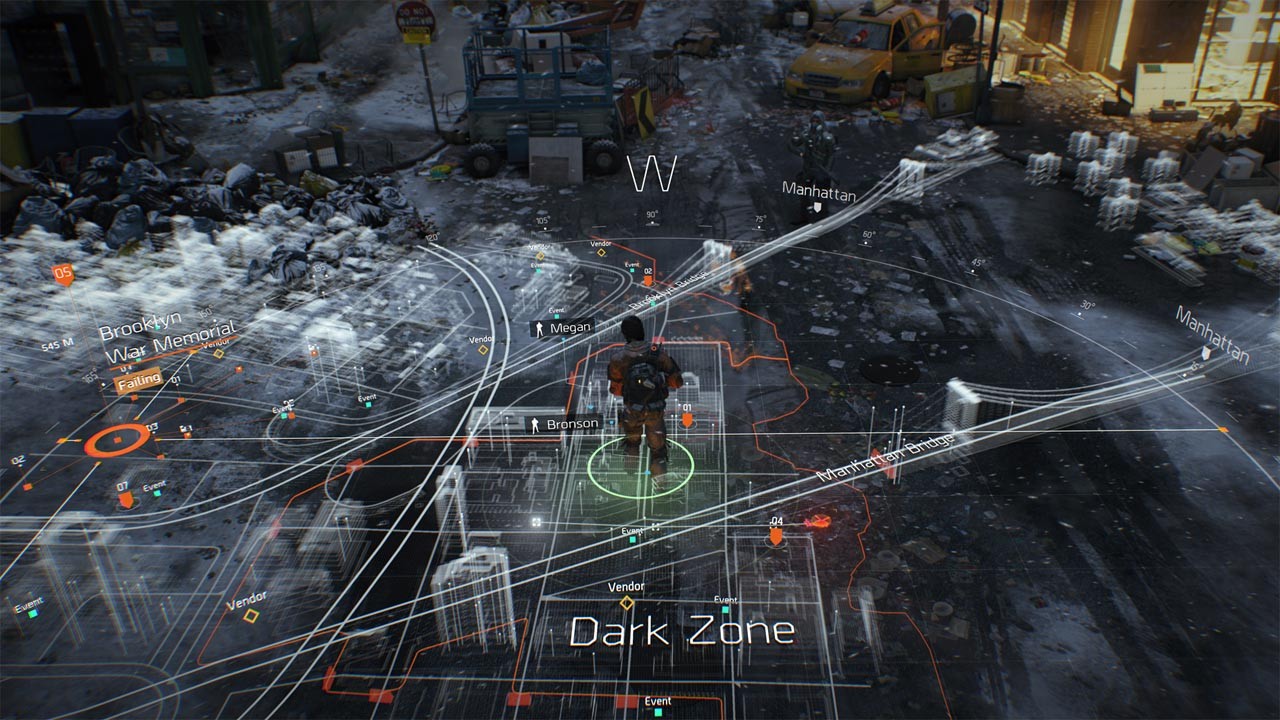
After a busy weekend playing as much of the beta as possible, we put together a Top 5 video listing the changes we wanted to see implemented before launch.
-
Ubisoft Massive Q&A Provided Info on Changes Since Beta and Missing Features
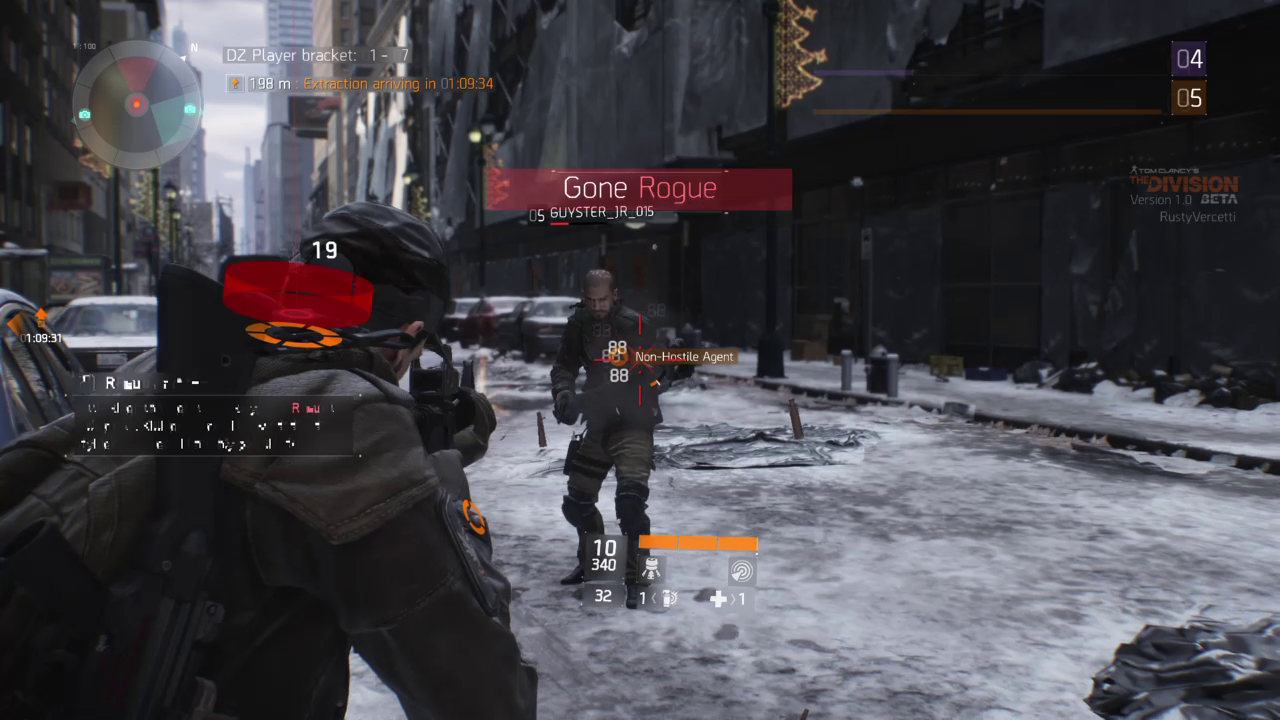
Game Director Petter Mannerfelt opened up an IGN Q&A saying, “Player feedback is important to us. Based on the closed and open beta feedback, we did, for example, make some adjustments in the Dark Zone.”
He then went on to give details on the bigger changes made since the open beta, and features that are missing.
-
It Debuted Our Trailer Parody Series
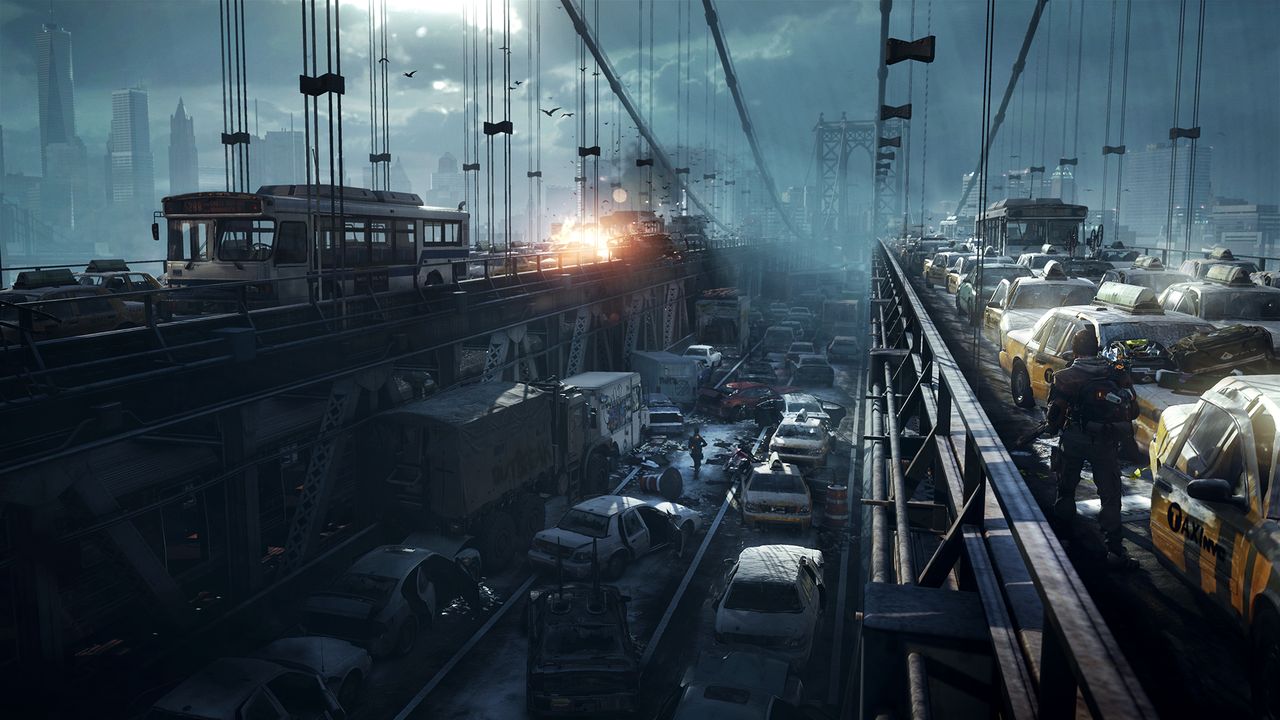
Sometimes we do silly things, and this trailer parody is one of them. Click to watch us light-heartedly poke fun at The Division and the controversies that have surrounded it since its reveal.
-
There's a 10-Minute Live-Action Short Film
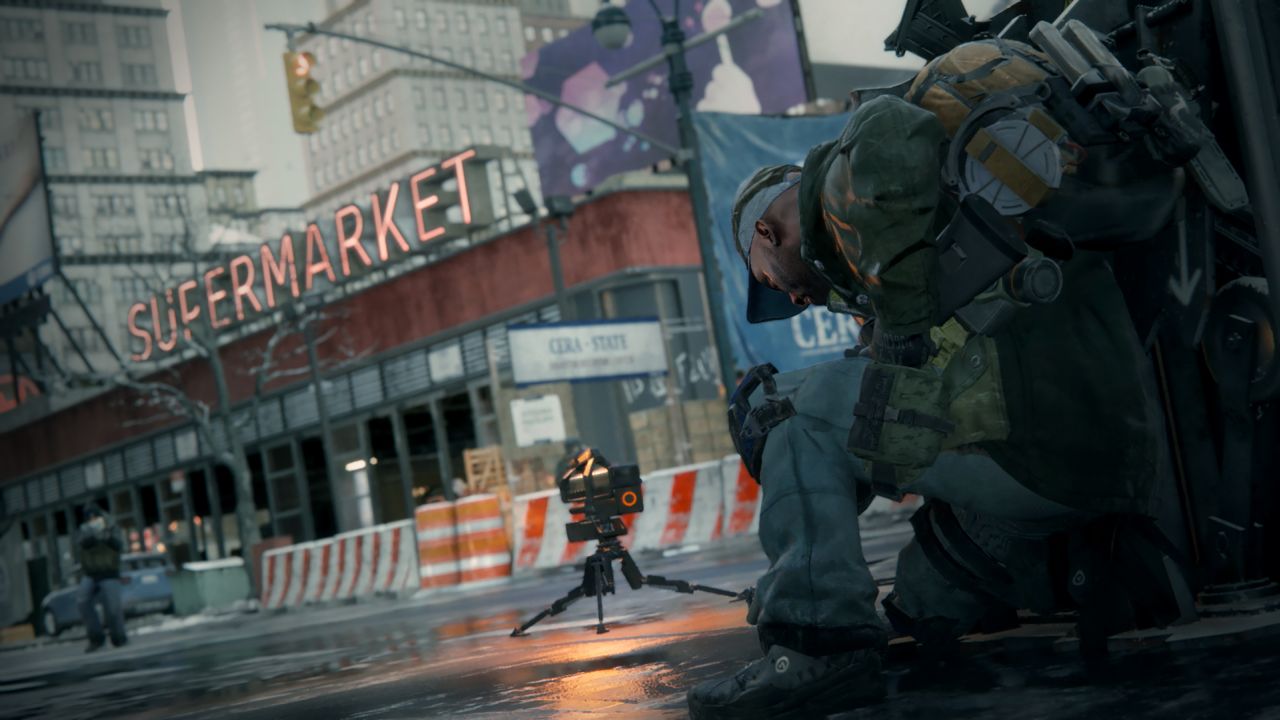
Ubisoft partnered up with Amazon and YouTubers to put together a pretty damn epic live-action short film entitled "Agent Origins: Escape." Watch it!
-
It Inspired Our Top 5 Post-Apocalyptic Games Video
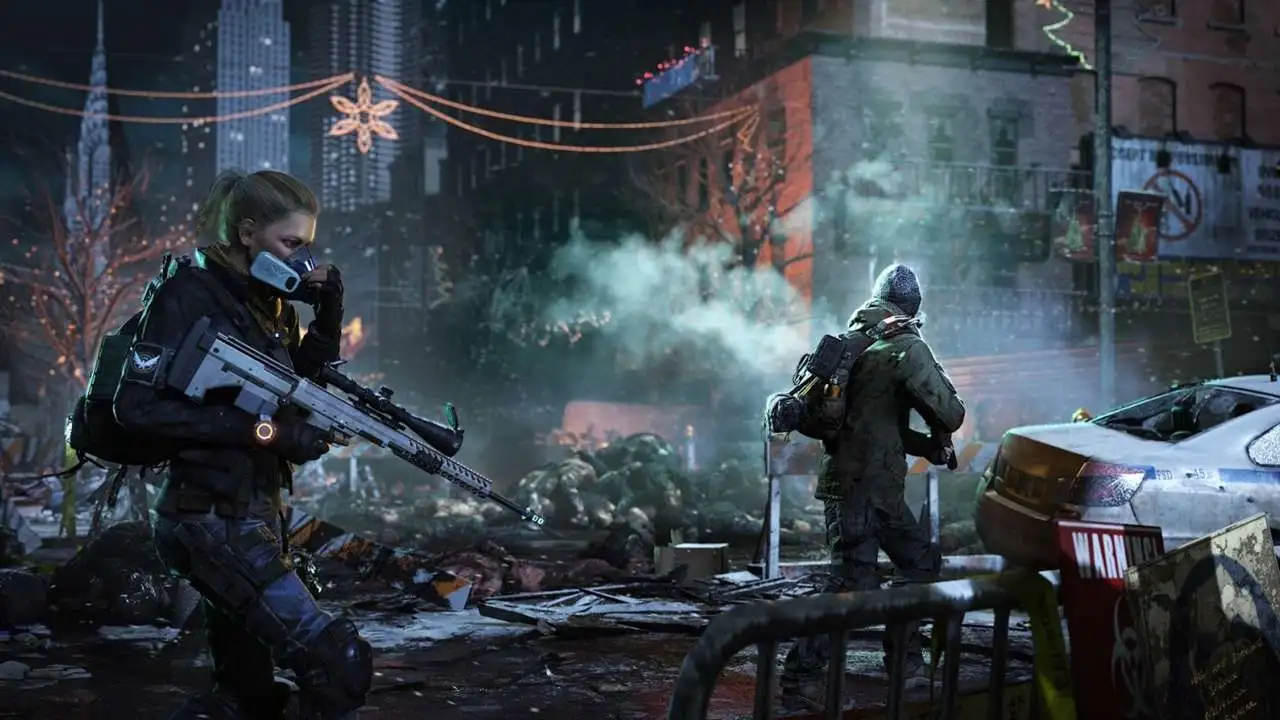
Get in the mood for mass death and destruction as we count down the Top 5 Post-Apocalyptic Games.
-
Ubisoft Prepares You for Launch
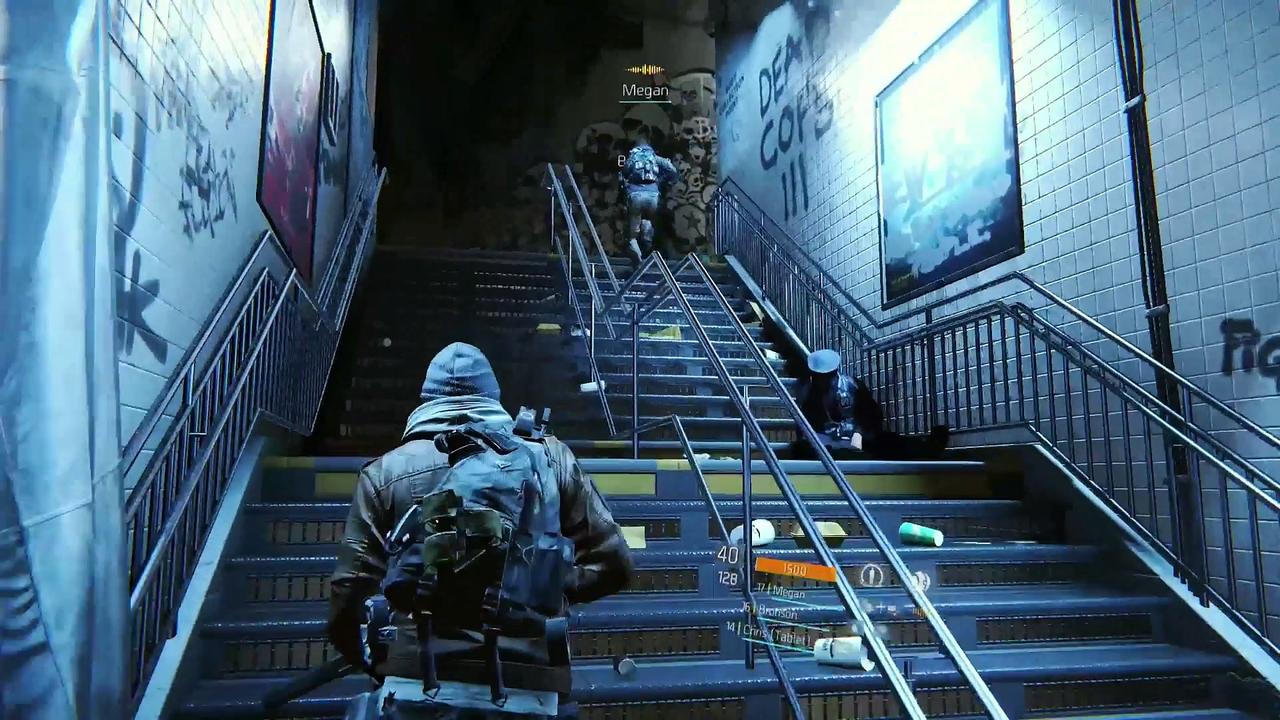
Over on the official The Division site, Ubisoft has rounded up some of the launch info that people might want to know.
We've plucked the info on what we think are the most important stuff which you can below.
Client Size: From 26.9GB to 34.4GB depending on your platform and region.
When the Servers Go Live:
Retail:
- Xbox One and PlayStation®4 will be available as soon as the servers open on Tuesday, March 8, 00:01AM Australian Eastern Daylight Time (AEDT) (March 7 at 2 pm CET/8 am EST/5 am PST)
- PC will be available worldwide on March 8 at 6 am CET/12 am EST/March 7, 9 pm PST
Digital:
- Xbox One will be available on March 8 at 00:01 am in each country's local time (00:01 am EST for USA and Canada).
- PlayStation®4 will be available on March 8 starting from 00:01 am in each country’s local time (00:01 EST for USA and Canada).
- PC will be available worldwide on March 8 at 6 am CET / 12 am EST / March 7, 9 pm PST.
Also of note, Ubisoft will host a live-stream of the game over on the game's official Twitch channel.
-
The Collector's Edition Costs $160
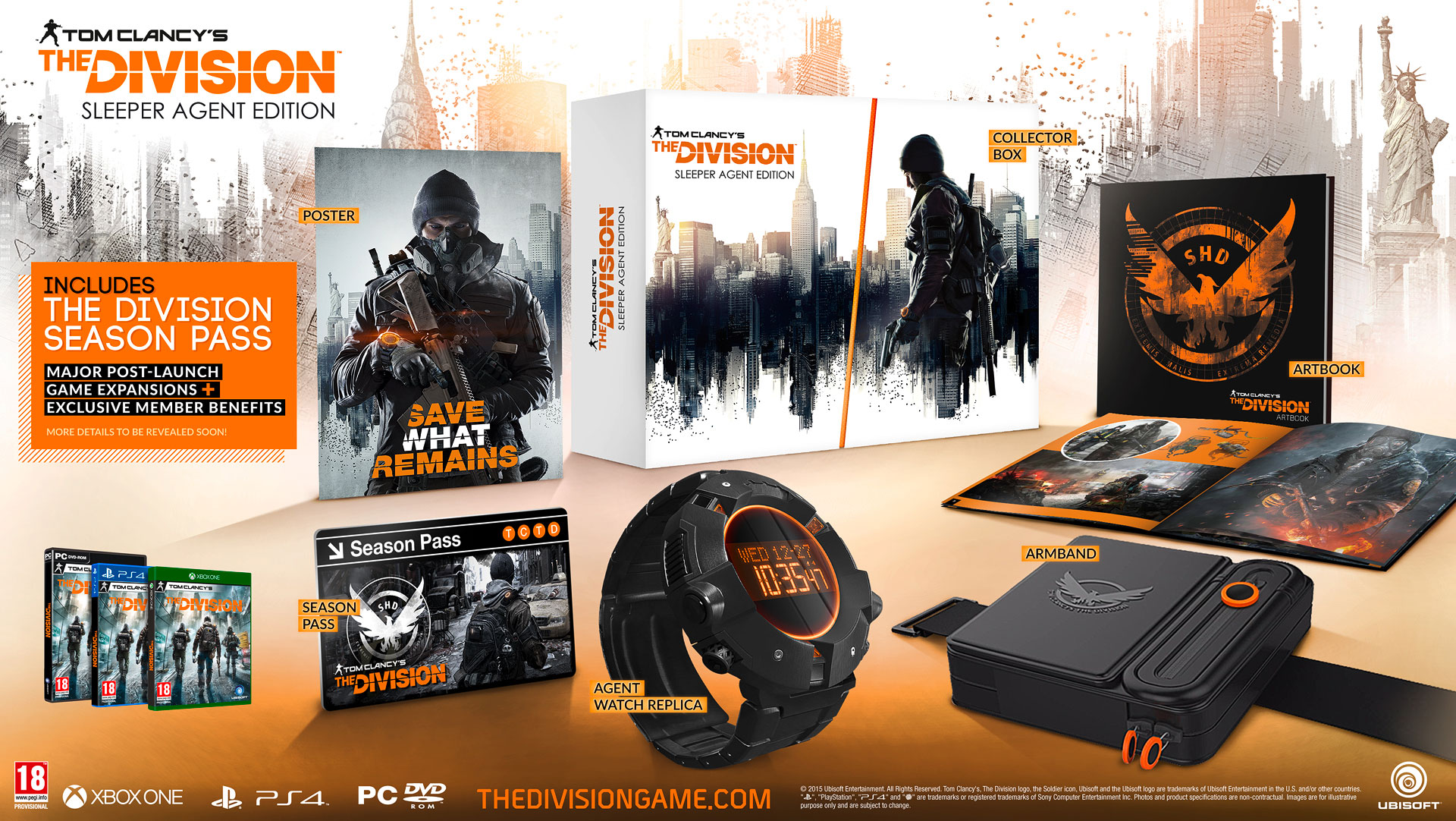
Yeah, it's pricey but might be worth it. The Collector’s Edition, that’s priced at $159.99 USD and includes the game, Season Pass, real agent watch, poster, artbook, and armband.
